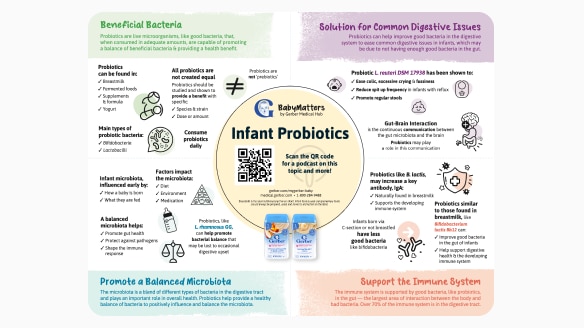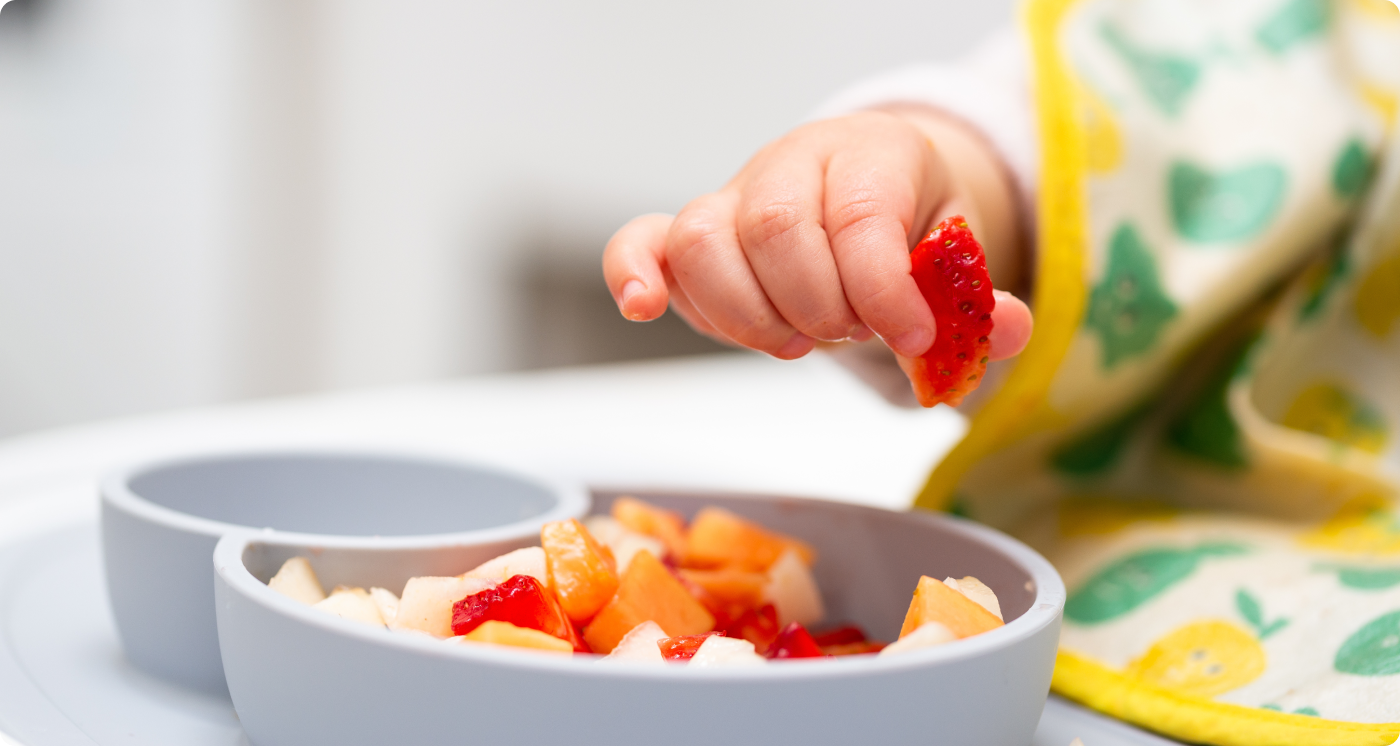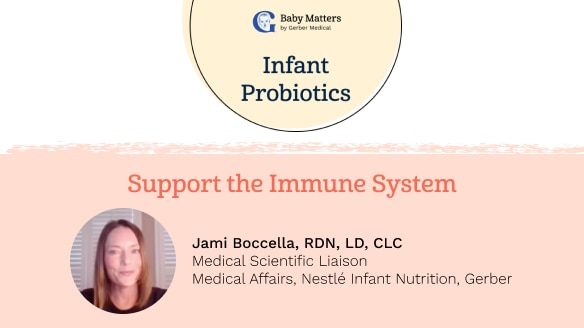Infant Probiotics - BabyMatters™
3 min read • By: Gerber Medical Hub

Quick summary
Probiotics are live microorganisms, including beneficial bacteria, that promote a balanced gut microbiota and offer health benefits. They can be found in sources like breastmilk, fermented foods, and supplements. These microorganisms, such as Bifidobacteria and Lactobacilli, help with common infant digestive issues, support the gut-brain connection, and enhance the immune system. Probiotics play a vital role in maintaining gut health, protecting against pathogens, and shaping the immune response, particularly important for infants born via C-section or not breastfed.
picture_as_pdfVIEW PDF INFOGRAPHIC
Table of contents
Beneficial bacteria
Probiotics are live microorganisms, like good bacteria, that, when consumed in adequate amounts, are capable of promoting a balance of beneficial bacteria & providing a health benefit.
Consume probiotics daily

Probiotics can be found in:
- Breastmilk
- Fermented foods
- Supplements & formula
- Yogurt

Main types of probiotic bacteria:
- Bifidobacteria
- Lactobacilli
Probiotics are not 'prebiotics'

All probiotics are not created equal. Probiotics should be studied and shown to provide a benefit with specific:
- Species & strain
- Dose or amount
Solutions for common digestive issues
Probiotics can help improve good bacteria in the digestive system to ease common digestive issues in infants, which may be due to not having enough good bacteria in the gut.

Probiotic L. reuteri DSM 17938 has been shown to:
- Ease colic, excessive crying & fussiness
- Reduce spit up frequency in infants with reflux
- Promote regular stools

Gut-Brain Interaction is the continuous communication between the gut microbiota and the brain. Probiotics may play a role in this communication.
Promote a balanced microbiota
The microbiota is a blend of different types of bacteria in the digestive tract and plays an important role in overall health. Probiotics help provide a healthy balance of bacteria to positively influence and balance the microbiota.

Infant microbiota, influenced early by:
- How a baby is born
- What they are fed

Factors impact the microbiota:
- Diet
- Environment
- Medication

A balanced microbiota helps:
- Promote gut health
- Protect against pathogens
- Shape the immune response
Probiotics, like L. rhamnosus GG, can help promote bacterial balance that may be lost to occasional digestive upset
Support the immune system
The immune system is supported by good bacteria, like probiotics, in the gut — the largest area of interaction between the body and bad bacteria. Over 70% of the immune system is in the digestive tract.

Probiotics like B. lactis, may increase a key antibody, IgA:
- Naturally found in breastmilk
- Supports the developing immune system

Probiotics similar to those found in breastmilk, like Bifidobacterium lactis Bb12 can:
- Improve good bacteria in the gut of infants
- Help support digestive health & the developing immune system
Infants born via C-section or not breastfed have less good bacterialike bifidobacteria
Gerber products with probiotics
Gerber offers several varieties of probiotic cereal to support baby's digestive health with probiotics, when eaten daily. Gerber Powerblend™ with probiotics is Gerber's first infant cereal made with a powerful blend of whole grain oats, lentils, veggies, and nutrients working together to support baby's brain and body.
 LEARN MORE ABOUT INFANT CEREAL
LEARN MORE ABOUT INFANT CEREAL BabyMatters™ infant probiotics resources

Addressing the topic of infant probiotics in this podcast, featuring special guest, Associate Professor, Department of Pediatrics, Division of Gastroenterology and Nutrition, Johns Hopkins University School of Medicine, Dr. José Saavedra.
Listen to podcast
Infant probiotics videos
- Beneficial bacteria
4 min video
- Solutions for common digestive issues
4 min video
- Promote a balanced microbiota
3 min video
- Support the immune system
3 min video



